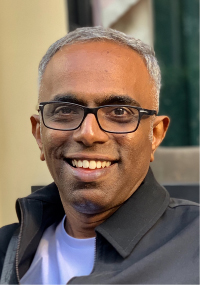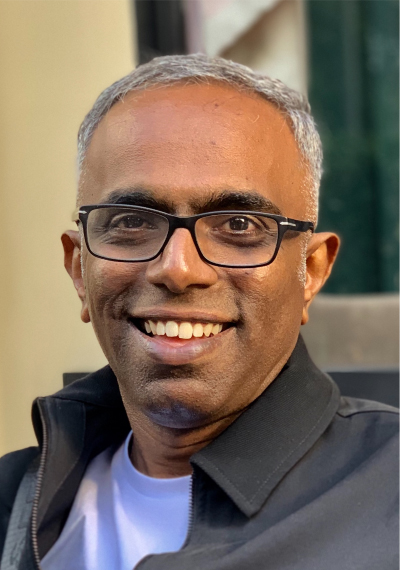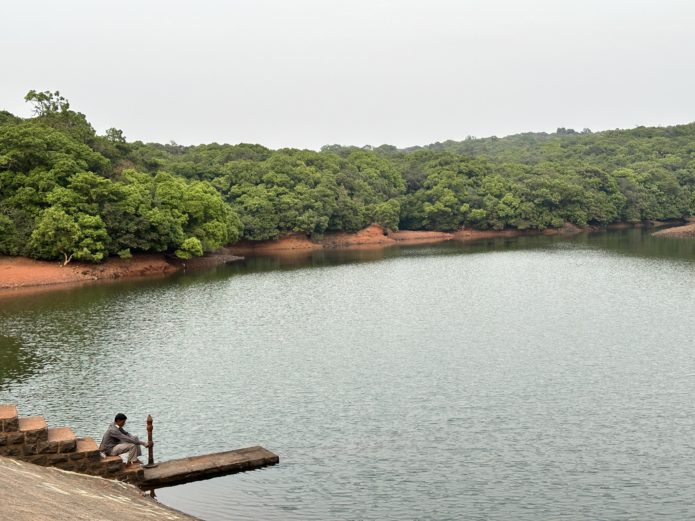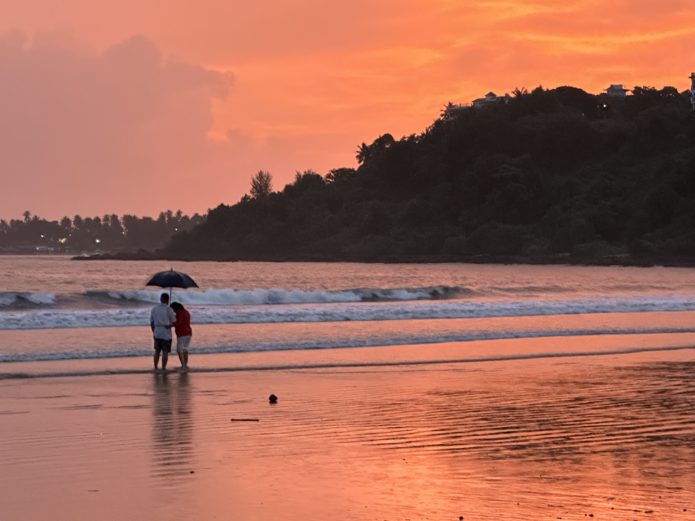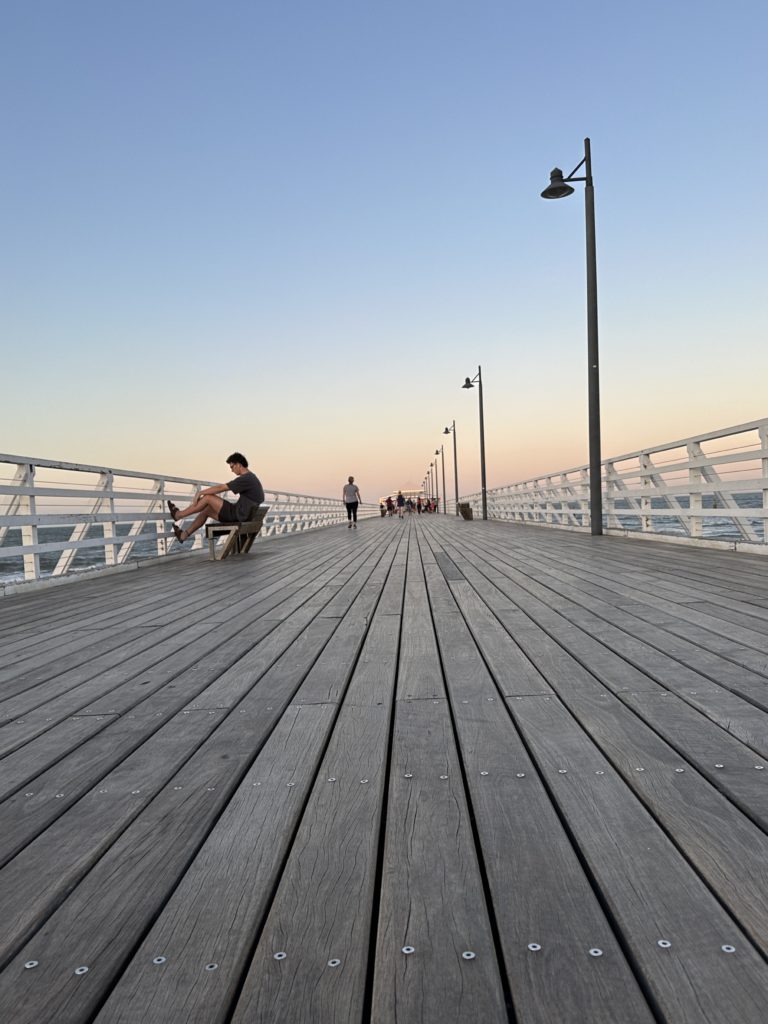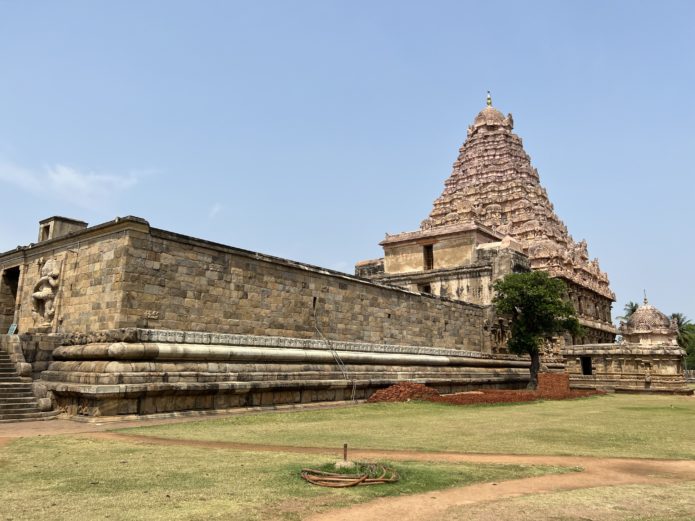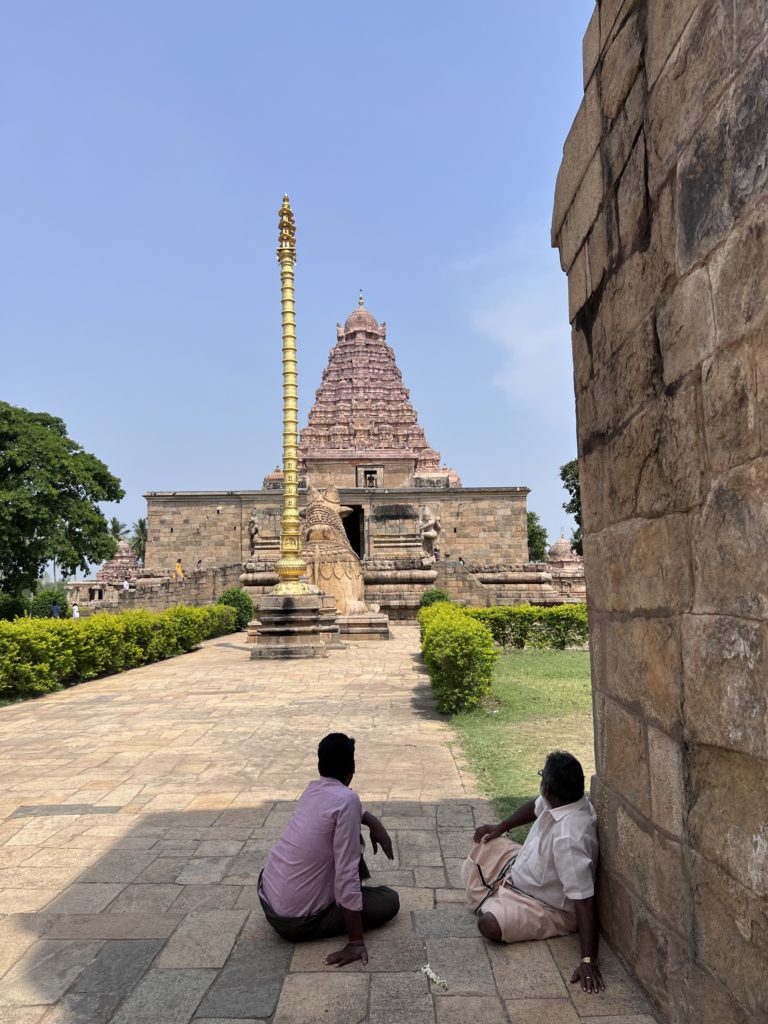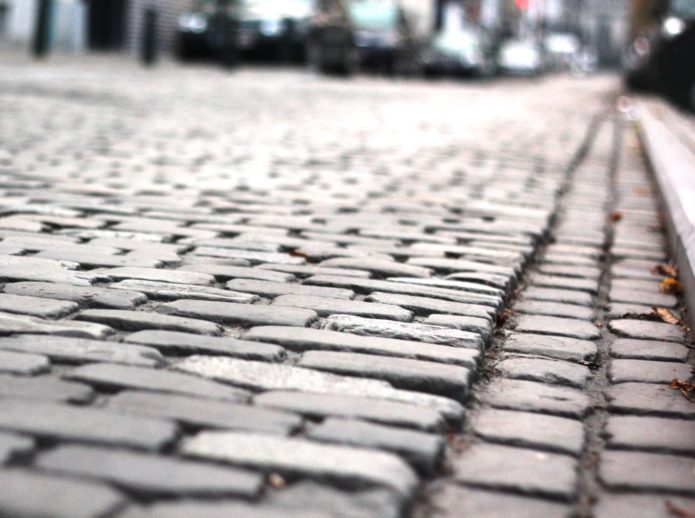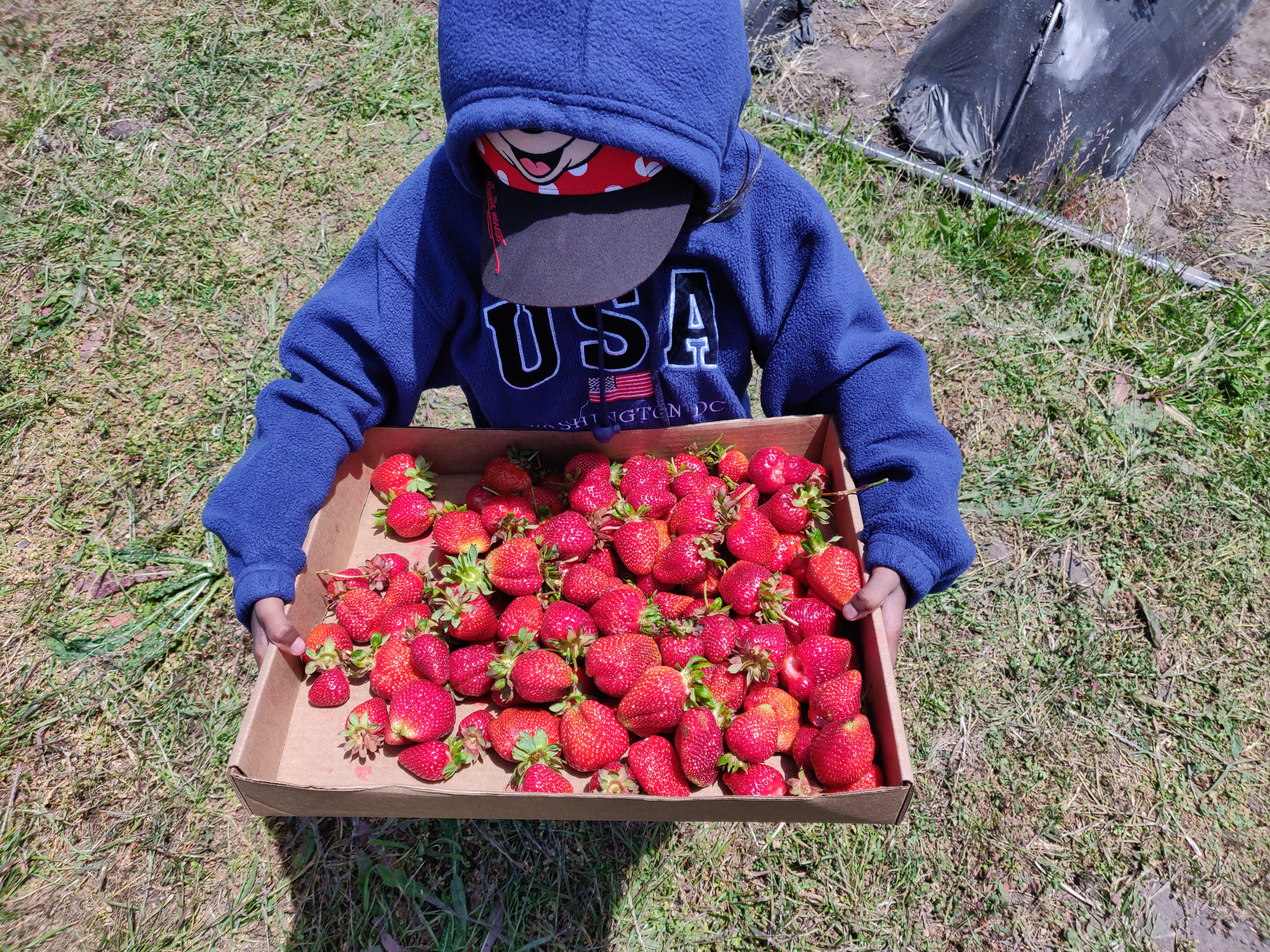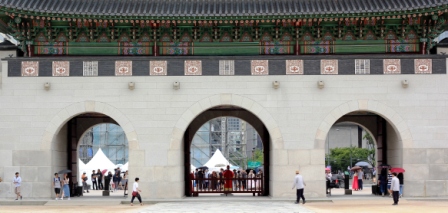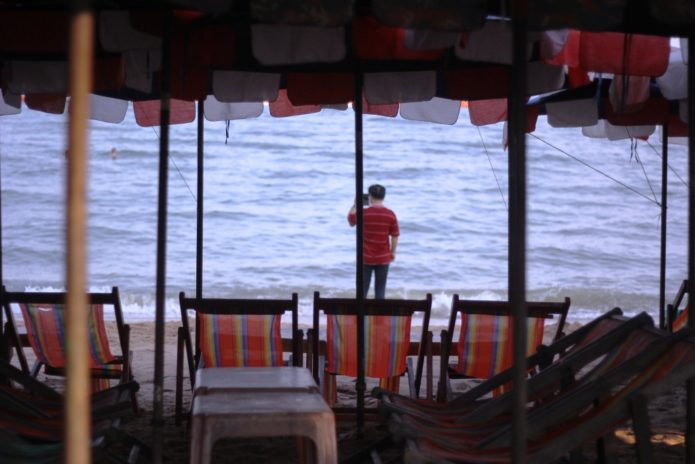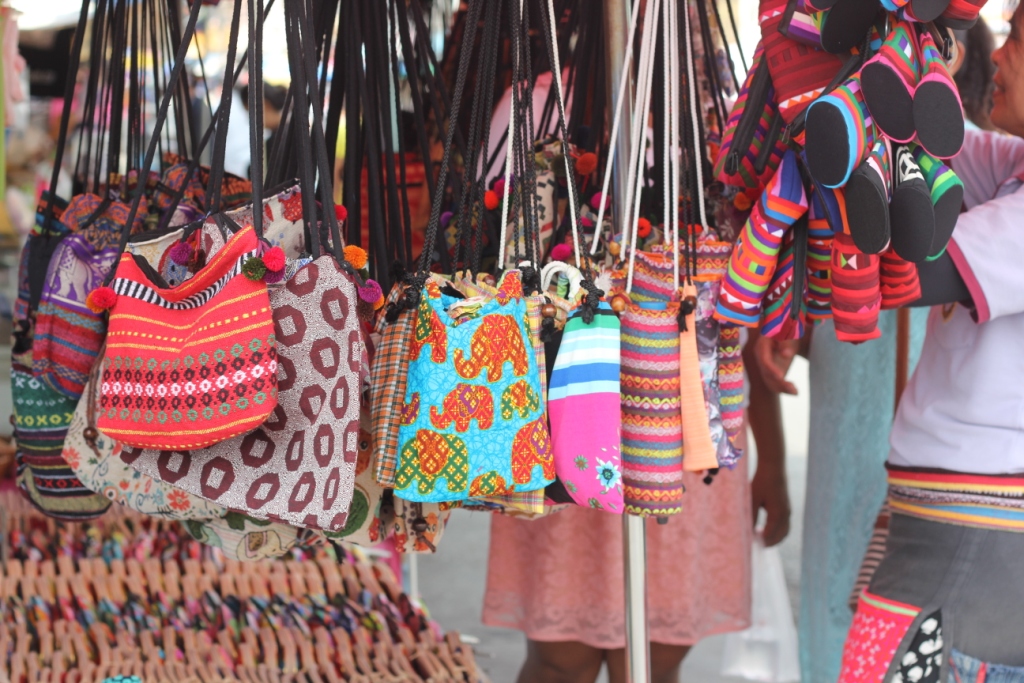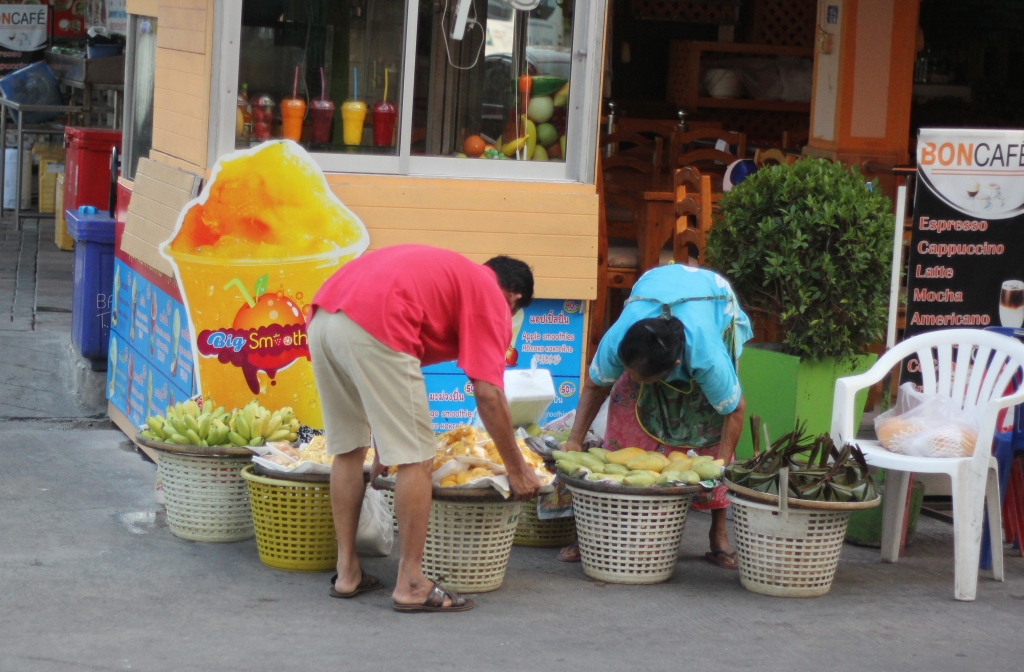For a trickle of Korean Won, we could peer through fixed telescopes and look into North Korea. To the clank of the coin settling into the metal box, I peered on. Blue skies. An occasional soldier. Green mountains, and fluttering birds. It could have been some nature reserve. But I was standing at the Korean border at Imjingak and staring into North Korea.
The Demilitarized Zone ( ‘Dee Emm Zee’) is a strip of land running across the Korean Peninsula separating the two Koreas. It is 250 kilometers long and 4 KM wide. With wire fences, watchful eyes and guns on either side its brought with it a side benefit. There are no apartment complexes, flyovers, malls with their attendant parking lots and the like. You get the picture, don’t you? Who doesn’t know the rampant poverty that ‘development’ ushers in the world over? The DMZ though is green and lush. Perhaps no other piece of green is as protected and watched by the rest of the world as much as this strip! Dark cloud, silver lining and all that.
Beyond the Demilitarized Zone is one of the heaviest military presence. And heavier posturing perhaps. The posturing and the promise of war have given life to some of the most endangered species thriving. DMZ plays host to some of the most exotic and endangered species. Like cranes, leopards, tigers, and bears. Perhaps these species, have over the years, learned to live under the gaze of the guns in the air and landmines beneath their feet.
That silver lining apart the DMZ is a dark area. It stands as a bright testimony to the limitless potential of human avarice, greed, and one-upmanship. The two Koreas have shouted at each other with loudspeakers ( actual loudspeakers belting out propaganda) across the border. They have tried to outdo each other building tall flag poles and sent balloons with leaflets across the DMZs. All these of course, when they weren’t busy staring each other down. Incredulous it seems. But from 1953, peace has reigned. By and large.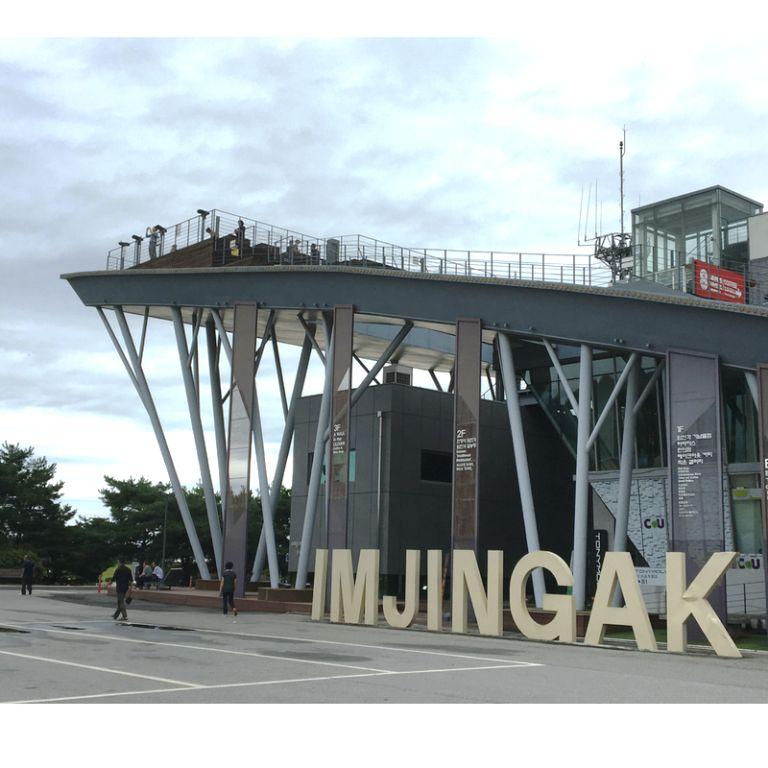
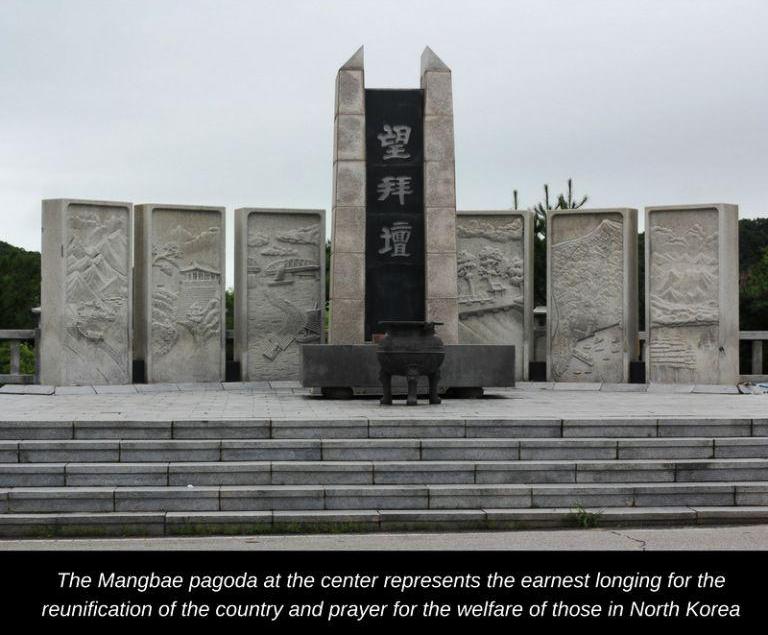
The Korean border at Imjingak which hosts the telescopes offers may a pointer. ‘Mangbaeddan‘ is one such. It’s an altar to pray for ancestors and their families. People from across South Korea whose origins were from somewhere in the North, come here to bow down. It’s a bowing down to their parents and ancestors as a sign of respect during new year and other important festivals. Parents who stayed back. Or could not be contacted. One whole country that is a black box. Not even a snail mail service.
There is a plaque that captures the sentiment than my words can. “After 36 years of Japanese colonial era rule, our country was liberated on August 15, 1945, thanks to the sacrifices of service personnel who fought for the nation’s independence and for an end to the Second World War. Before celebration could break out, however, Korea was arbitrarily divided into north and south according to a unilateral decision on the part of larger powers regardless of the desire of our people. Mangbaeden is a permanent alter established by the government at a cost of 500 million won (supervision by the Ministry of Home Affairs 5 North Korean Provinces, execution: Paju Country Office ), at Imjingak, overlooking the lands of North Korea.
Five million people left their home in the north, where they had lived for generations, to avoid the Soviet army and the North Korea Communist Party’s persecution and brutalities. The refugees built a temporary altar at Imjingak on every Chuserok (Korean Thanksgiving day ), held an event to honor their ancestor and parents who had been left behind in North Korea, and longed for a permanent altar. In terms of scale and form, the censer and altar are located on a 400-m site. The Mangbae pagoda at the center represents the earnest longing for the reunification of the country and prayer for the welfare of those in North Korea. The characteristics of the historical remains, institutions and customs and mountains and streams of the 5 North Korean Provinces, and the non-reclaimed area, Gyeonggi and Gangwon were carved in seven granite stone-folding screens around the pagoda to ease the homesickness of the refugees.”
A friend who was with us spoke with eloquence about her mom, who several years ago, had to be held back by border guards. As she dashed towards the border at Imjingak, sorely missing her mother who got left behind beyond the border. I listened to the story with a keen ear and a pounding heart. The cruelty that permeates several lives in the planet needed explanation beyond borders, flags, and territory.
Madmen fire rockets and ramble from podiums around the world about destruction as though it were a lollipop. Even as the rest of us duck for cover, there are some who wonder if there is a silver lining somewhere.The dark clouds sprouting to the sky seem imminent. Costly, ghostly dark clouds. Will there be silver linings or will it too little, too late? Opinion is divided but hope springs eternal.

There are citizens who yearn to be united. The “We are One” installation in Imjingak for instance, portrays this yearning for a peaceful reunification. “Installed by the Paju Government on February 14, 2006. This sculpture embraces our desire to achieve peaceful reunification. The joining of the two separated parts by the figure of 8-knot embodies the unification of North and South Korea. The height is 280 centimeters which represent the 28 metropolitan cities and provinces in the Korean peninsula”
Nothing perhaps captures the tragedy of the separation more than the bullet-ridden testimony that the engine of a steam locomotive that plied between the North and the South. The tracks from that time remain. The station names call attention to the staid tracks and lost ways. The bullet holes stare with vapid eloquence amidst the cackle of tourists, selfie sticks, and cameras. Somewhere in between the point of all suffering seems distant and removed from the priorities of the present day. 
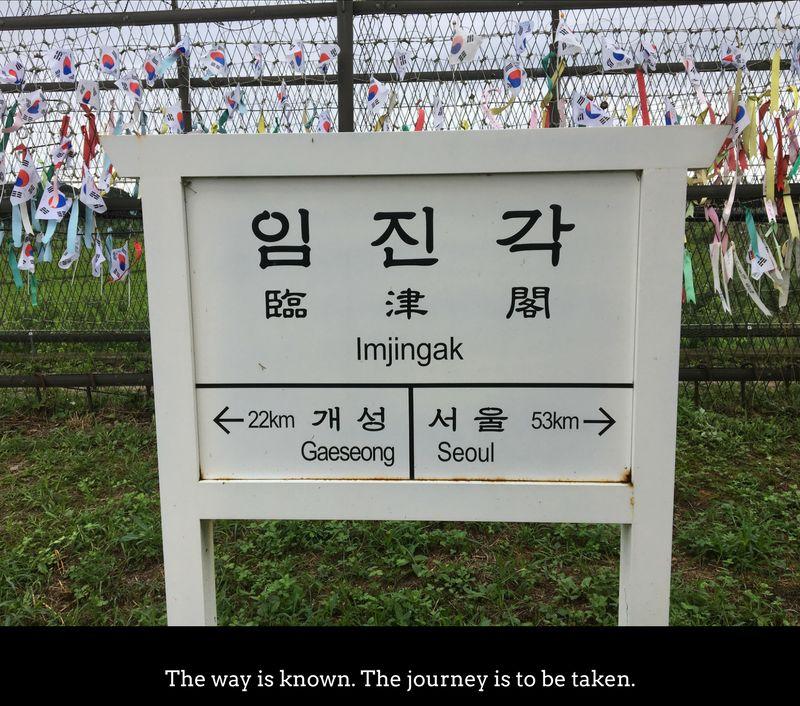
As I try to pack my memories from Imjingak into a neat stack, I realise they elude fitting in. They spring in different directions. The tears of separation and sadness seem to take away the sheen off the silver lining. That leaves me with a simple line and a dark cloud.
Ever since visiting Imjingak, any image of leaders and armchair commentators waxing eloquence on twitter or from podiums gets me ever more present to what it is on the ground. The stories that are not told. Stories about living through separation and war. It is 2017 and the world has made serious progress in several dimensions from electric cars to space travel. But can there be a greater travesty that vast tracts of the human mind continue to let the future to be held prisoner by the mistakes of the past?
Must not the imagination that has fuelled ‘progress’ also help us extricate us and co-create a better future? Even if it meant a slow, painful extrication? As I sat in silence at the Mangbaeddan, Tom Brokaw‘s commencement speech to the class of 2006 wafted in from memory. More than a decade old now, but has relevance.
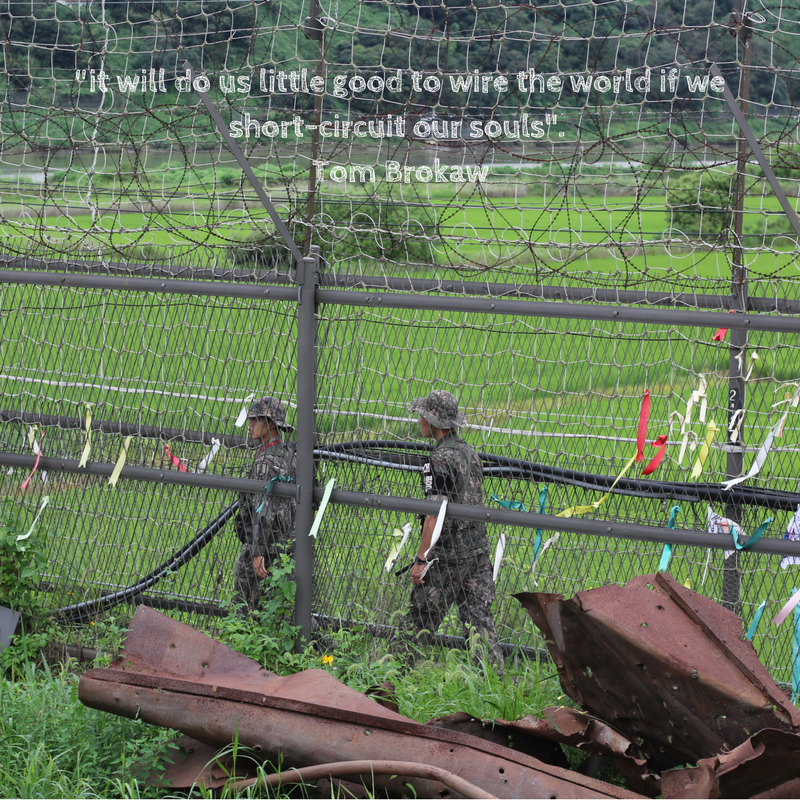
Here is one part of his speech.
“So, welcome to a world of perpetual contradictions, welcome to a world of unintended consequences and unexpected realities. Welcome to a world in which war is not a video game, … in which genocide and ancient hatreds are not eliminated with a delete button. You won’t find the answer to global poverty in Tools or Help. You cannot fix the environment by hitting the Insert bar. You cannot take your place in the long line of those who came before you simply by sitting in front of a screen or at a keyboard.
The pace of change in your lifetime is at warp speed. We live now on a smaller planet, with more people, many of them on the move these days in a desperate search for economic opportunity and political freedom, a world of ever-diminishing open spaces, disappearing natural resources, with great seismic shifts in political, economic and cultural power wherever you may be on this planet…..
We cannot ignore them, and as the last four years have demonstrated in tragic fashion, a military response is inadequate. If … hostility is not addressed in a more effective manner in the West, and in the Islamic world as well, we will live in a perpetual state of terror and rage on both sides of the equation.
So a primary challenge of your time is to bank the fires of hostilities that are now burning out of control, to neutralize that hatred, to expedite not just global competition economically and politically, but also global understanding, and especially global opportunity.
To do that requires more than a fresh political strategy or imagination.”
The full text is here. The context has shifted a bit. But the fundamental contradictions remain. Only exacerbated by a new crop of leaders who whose jingoism and sabre rattling divides people even further.
Imjingak is a reminder that we need to look beyond the narratives that the unreasonable madness in the political leadership of the modern day. We need to search for and connect to a deeper humanity in each other. Cliched it may sound. There aren’t easy solutions. But the absence easy solutions must not get us lean towards letting the dark clouds loom from the ground. We still have several silver linings today. The capabilities that are present in us to operate from ‘imagination’ is one such. Perhaps we could start there.
Earlier Post on my Korean travel is here
